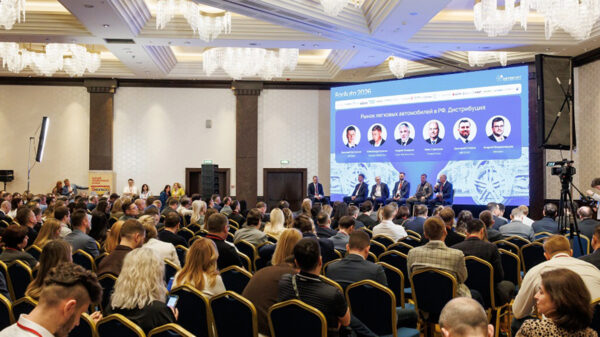
A computer-edited image shows a woman pulling back the string of a virtual bow and arrow, represented by a tracery of neon lights emanating from the sensors she wears on each wrist
Credit: Facebook
Facebook has unveiled an intention-reading wristband that allows users to control their lights, boil kettles and manipulate virtual objects from a distance with tiny movements of their fingers.
In a video demonstration on Tuesday, the social media giant laid out its plan to replace the computer mouse with wrist-mounted sensors that intercept the commands sent by users’ brains to their hands.
First created by New-York-based brain tech firm CTRL Labs, which was acquired by Facebook in 2019, the as yet unnamed wristbands can already be used to finely control a virtual reality (VR) interface and to play video games, sometimes without the user moving their hand at all.
Sean Keller, director of research science at Facebook’s Reality Labs division, said the wristbands are designed to be used alongside its future augmented reality (AR) glasses as the interface for an all-encompassing computer system that uses artificial intelligence (AI) to intertwine itself into every aspect of lie.
No timeline for the release of such products was given, with executives describing them as a long-term ambition that is still being tested.

An image of someone making a simple 'click' gesture with one of the wristbands
Credit: Facebook
Mr Keller said: "Unlike the graphical user interfaces of today, this system will be able to function in every situation you encounter in the course of a day.
"It’ll be able to tell you what you need to know when you need to know it, in much the same way that your own mind works – seamlessly sharing information and taking action when you want it, and not getting in your way.
"This opens up the opportunity to build a computing platform that meets you where you are, moment to moment… that’s intuitive and understands your intent and personal boundaries… in other words, it’s an interface that puts humans back in the loop."
Mr Keller and other executives also detailed Facebook’s efforts to invite public comment and outside research about the potential privacy problems of such a system, but said nothing about how Facebook intends to monetise it in future.
Mike Schroepfer, Facebook’s chief technology officer, was at pains to specify that the wristbands do not read minds, saying: "It is simply motor information – the intent for you to move your hand. It is nowhere near some sort of brain or thoughts or anything like that.
"It is equivalent to the data you’d get if you had a physical glove measuring what your hand is doing, and no more." He added that Facebook would not have access to that data.
CTRL Labs had been working on electromyography – the science of translating human nervous signals into digital information for several years before being acquired. Facebook’s presentation showed new tests and concepts for how such technology could function in regular life.
The company showed mock-ups of a woman reading through emails projected onto empty space in front of her, scrolling and clicking without raising her hand from her lap, and a user dimming a lamp and changing its colour via controls that appeared to be on their palm.
Other uses involved typing on an invisible keyboard; automatically starting a music playlist while cutting vegetables; and navigating recipes and setting timers while cooking. Users were frequently shown being given yes or no prompts for actions that the AI had learned might be appropriate in the situation.
The company is still experimenting with ways to give users "haptic" feedback, creating a sense of touch and resistance when manipulating virtual objects such as the AR keyboard or a bow and arrow.
Researchers found that users’ brains accepted pressure exerted on their wrists as being connected to motions of their fingers through a phenomenon known as sensory substitution, by which the brain can recreate an absent sensation if it is reproduced by stimulating another part of the body.
Haptic feedback could also be used to give users map directions without requiring them to look down at their phones, or to notify them that a specific person has sent them a message while they are jogging.

The emperor's new keyboard?
Credit: Facebook
Many of the images and videos suggested that Facebook may aspire to building smart home devices, beyond its existing Portal video calling hub. A spokeswoman demurred further comment, saying the company is focused on making the system work.
Thomas Reardon, previously the chief executive of CTRL Labs and now Facebook’s director of neuromotor interfaces, described how the wristband controls would also use AI to learn how specific users tended to move their body, eventually creating a personalised interface.
With practice, he said, he and some colleagues had gained the ability to activate the jump command in a simple video game merely by thinking. However, it is not yet clear whether this will be possible for more subtle or complicated gestures.
While Facebook executives frequently describe AR as a way to liberate users from their smartphones and return their attention to the world, it would also give Facebook an unprecedented role in their daily movements and perception.
In a blog post last week, the company suggested that AR will obviate the need to ration smartphone use, saying: "Our world is both digital and physical, and we shouldn’t have to sacrifice one to truly embrace the other."
Executives also did not address what Facebook might do with the information gathered by such a close AI companion, which would have direct access to the kind of detailed data about users’ domestic habits, use of time, consumption patterns and health that market researchers have coveted for decades.
Instead Mr Schroepfer and others focused on the privacy of users’ actions and nerve signals, as well as other people whose faces and voices would be picked up and analysed by AR glasses. Executives emphasised Facebook’s ongoing consultation with academics and its two $1m (£716,785) grants for outside researchers.
Mr Keller said: "We want to open up an important discussion with the public about how to build these technologies responsibly. The reality is that we can’t anticipate or solve all the ethical issues associated with this technology on our own.
"What we can do is recognise when the technology has advanced beyond what people know is possible and make sure that the information is shared openly. We want to be transparent about what we’re working on so that people can tell us their concerns."

























































Свежие комментарии